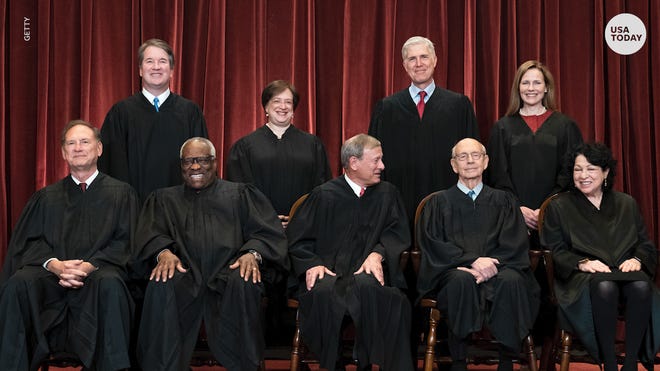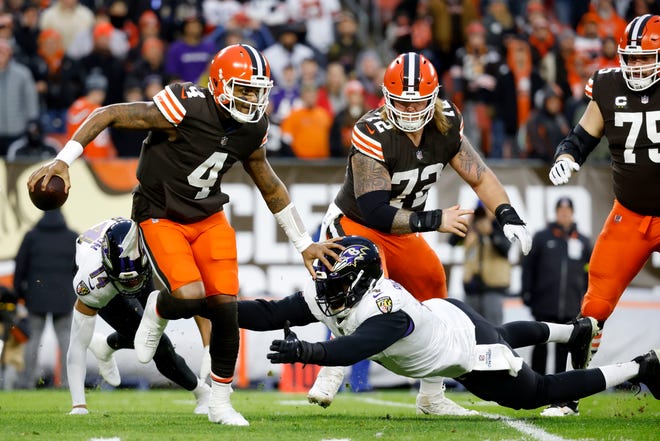
WASHINGTON – The Supreme Court will hear oral arguments Wednesday in a challenge to Mississippi’s ban on most abortions after 15 weeks of pregnancy, a blockbuster case with the potential to upend reproductive rights across the nation.
In the most closely watched dispute the high court has tackled in years, the justices will consider not only whether to uphold the Mississippi law but whether to overturn its 1973 decision in Roe v. Wade that established a constitutional right to abortion.
Arguments will begin at 10 a.m. EST.
Jackson Women’s Health Organization, the last abortion clinic in Mississippi, challenged the law in 2018, asserting it conflicted with Roe. Two lower federal courts agreed.
Other states:Supreme Court's decision in abortion case will affect dozens of states
Roe at issue:Supreme Court to hear blockbuster Mississippi abortion case
The Supreme Court, where conservatives hold a 6-3 advantage for the first time in decades, surprised observers by agreeing to hear the case at all. Similar bans have been struck down by lower courts without intervention from the nation’s highest court. And so the decision to take the case signals that at least some members of the court want to say something about the direction lower courts have taken on the issue.
Former President Donald Trump vowed to put the court on a path to "automatically" overturn Roe. And he nominated three conservative justices who have signaled their displeasure with the decision. Much of the focus during Wednesday’s arguments will rest on two of them: Associate Justices Brett Kavanaugh and Amy Coney Barrett.
The decision will have ramifications beyond Mississippi, with dozens of conservative states poised to approve similar bans. At least 17 states have enacted "trigger bans" or have pre-Roe abortion bans already in place in the event the Supreme Court overturns the landmark ruling, according to the Guttmacher Institute, a research group that supports abortion rights.

A 7-2 majority in Roe v. Wade established a constitutional right to abortion and allowed people to exercise that right until the end of the second trimester. A 1992 decision ended the trimester framework and ruled people can obtain an abortion until viability, the point when a fetus can survive outside the womb or about 24 weeks into a pregnancy.
Abortion rights groups are expected to lean heavily on the significance the court places on being bound by precedent. That argument is likely geared to Kavanaugh and Chief Justice John Roberts, both of whom have raised concerns about the impact overturning precedent has on the court as an institution that casts itself as apolitical.
Anti-abortion groups, meanwhile, counter that, in this case, precedent should be tossed because Roe was incorrectly decided. They say the court’s legitimacy would benefit from nullifying a right not explicitly set out in the Constitution.

Polls show Americans are divided on the issue. Nearly two-thirds say the Supreme Court should uphold Roe, according to a recent Washington Post-ABC News poll. A Marquette Law School poll found a slim plurality, 37%, of Americans favor banning abortions after 15 weeks compared with 32% who would oppose that move.
Experts say the court may try to strike a middle ground by upholding the right to abortion while eliminating viability as the constitutional touchstone. Abortion rights groups say such an outcome would effectively overturn Roe, permitting states to approve increasingly earlier cutoffs for people to obtain the procedure.
If the court moves in that direction anti-abortion and abortion rights groups agree on one thing: It would spur a fresh round of lawsuits to determine where the new line should be drawn.
The court is likely to decide the case early next summer.
Source link







